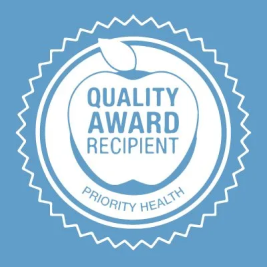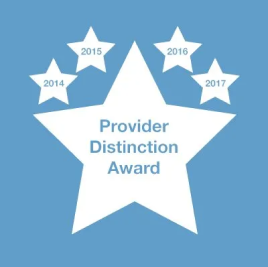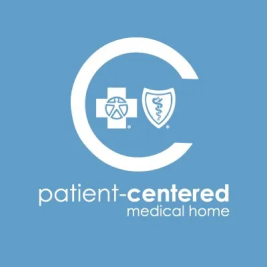Comprehensive General Care Services, Lake Odessa, MI
Your Health, Our Priority!
A Commitment to Your Health
Get proactive medical assistance and comprehensive healthcare for every stage of life.
Our General Care Services are designed to provide personalized treatment plans for patients managing chronic conditions or facing acute illnesses.
Our dedicated healthcare professionals take a patient-first approach built on trust, open communication, and care that adapts as your needs change. Look over all the services we offer to see how we can meet your family's health care needs and contact us for an appointment.
General Care Services We Offer
Immunizations
Immunizations are one of the most effective ways to protect your health. They strengthen your immune system by helping your body build resistance to serious diseases before you're exposed to them.
We provide a full range of vaccination options, including childhood immunizations, booster shots, and vaccines for adults. Visit us to update your vaccination status, protect yourself, and contribute to your community’s collective health.
Allergy Shots
If you’re receiving care from an allergist, you may be driving long distances for your regular allergy shots. We offer a more convenient solution.
We work with your allergist to securely store your prescribed allergy medications at our office. Once your treatment plan is in place, you can come to our clinic for regular injections.
Acute Illness Care
While sudden illnesses can be distressing, timely and professional care can help you bounce back more quickly. We evaluate and treat a wide range of acute illnesses and determine if there is a more serious underlying issue to address.
Proactive medical care is an important safeguard for long-term health.
Minor Surgeries
You can trust our providers for safe, swift, and efficient minor surgical procedures, including ingrown toenail removal, mole and skin tag removal, wart cryotherapy, stitches, wound care and vasectomies.
With us, you don’t need to wait hours at an Urgent Care facility or Emergency Room and pay exorbitant prices. Call our office first to see how we can help.
Depression Screening and Treatment
Depression is a common and often misunderstood condition that can have a profound impact on your life.
We offer depression screenings and provide support through therapy referrals, medication management, and lifestyle strategies. If you’re feeling overwhelmed or struggling with daily life, we encourage you to reach out.
Chronic Condition Management
Living with a chronic condition? As a primary care medical office, we routinely help patients manage chronic health issues like hypertension, diabetes, kidney disease, obesity and more.
We work with medical specialists and specialty programs to proactively stabilize conditions and minimize long term debilitations.
Chronic Medical Issue Management
Managing long-term health conditions takes ongoing care and the right support system. And we’re here to give you everything you need!
As part of our primary healthcare services, we address challenges such as pain management, symptom control, medication adjustments, and lifestyle modifications. Our goal is to help you maintain stability, improve daily function, and enhance your overall quality of life.
Referrals to Specialists
Our healthcare professionals have a network of trusted specialists. When you need expert attention, we’ll refer you to someone who’ll treat you with the highest quality of care.
We’re committed to connecting you with the best in the field for specialized care.
Flu Shots
Every year, nearly 5-20% of the American population comes down with influenza. Known as the common flu, it’s especially dangerous for infants, seniors, and people with compromised immune systems.
Our office offers annual flu shots to lower your risk of getting sick and help reduce the spread of flu. Stay a step ahead of flu season: get vaccinated today.
Physicals
Regular physical exams can tell a lot about your health and detect potential issues early. Our healthcare professionals perform routine physical exams based on your age and medical status.
Regular routine physicals are foundational to a proactive preventive medical approach that can help you maintain good health as well as address medical issues at an early stage for the best health outcomes.
Benefits of General Care
We believe consistent, proactive care is the best way to stay ahead of health issues and live a healthier life. General care services can support you at every stage through prevention, early detection, and personalized treatment.
Early Detection of Health Issues
Regular check-ups help catch health issues early, when they’re easiest to treat. Early detection results in fewer complications, faster recovery, and a stronger foundation for long-term wellness.
Management of Chronic Conditions
If you’re living with diabetes, high blood pressure, or another long-term condition, steady support and ongoing health monitoring can keep you stable at all times.
Personalized Health Plans
Since no two patients are alike, our individualized health plans are based on your history, lifestyle, and goals. We take the time to listen and make sure your plan reflects what’s most important to you.
Improved Overall Wellness
Seeing your provider regularly encourages healthier habits, better lifestyle choices, stronger mental well-being, and improved overall wellness.
Access to a Range of Services
With comprehensive health services, you don’t have to juggle multiple providers. You can get everything from check-ups to referrals under one roof.
Why Choose Us for General Care?
Here’s why choosing our primary healthcare service center is a wise decision.
Your Trusted Healthcare Partner
Our focus on personalized service, clear communication, and consistent follow-up has made us a trusted name in Lake Odessa. When you choose us, you’re choosing a team that puts you first.
Experienced Healthcare Professionals
Our dedicated medical team includes board-certified, knowledgeable, and experienced healthcare providers who are fully committed to your welfare. You’ll receive expert care in a welcoming, respectful environment.
Patient-Centered Approach
As part of our patient-centered care, we make sure to understand your concerns, listen to your goals, and involve you in every decision. Your comfort, preferences, and peace of mind are always our priorities.
Comprehensive Services Under One Roof
Patients choose us for reliable healthcare. Whether it’s a routine check-up, chronic condition management, or a quick visit for a flu shot, we provide comprehensive services in one convenient location.
Community-Focused Care
We’re proud to serve the Lake Odessa community with compassionate, high-quality healthcare. Our healthcare professionals are dedicated to making a lasting difference in the lives of the individuals and families who trust us with their care.
Explore Our Other Medical Services
General Care Resources and Insights
FAQs
-
What types of general care services do you offer?
We provide a wide range of services, including routine check-ups, vaccinations, chronic condition management, acute illness care, minor procedures, and preventive screenings.
-
Why are regular check-ups important for your health?
Regular check-ups help monitor your overall condition, identify risks, and allow for timely intervention in case of potential illnesses. With preventive care, you can stay healthy and catch problems before they become serious.
-
How often should I schedule a general check-up?
Most patients benefit from an annual visit, but we tailor a schedule based on your age, medical history, and risk factors. Regular check-ups help catch issues before they become serious.
-
Do you accept new patients for general care services?
We always welcome new patients. Contact us to learn how to get started with your first appointment.
-
How can individuals improve their daily habits to promote better general care?
A few great ways to promote better general care include maintaining a balanced diet, staying physically active, managing stress, getting enough sleep, staying hydrated, and avoiding harmful habits like smoking and excessive alcohol consumption. These habits contribute to a better lifestyle and can reduce the risk of illness.
-
What should I bring to my first appointment?
Please bring a valid photo ID, your insurance card, and a list of medications or supplements you're taking. If available, bring previous medical records to help us better understand your history. You can download New Patient Forms on our website.
-
How can I manage my chronic condition through general care?
Our team will work with you to create a personalized management plan that includes regular check-ups, medication management, and lifestyle recommendations.
-
What is the process for referrals to specialists?
If your care requires a specialist, we’ll handle the referral, send your records, and help you schedule the visit. We also stay involved to make sure your treatment remains coordinated and smooth.
Request an Appointment
Send Us Your Information
Have a question? Want to become a patient? We’re here to help. Send us your information and we’ll be in touch. Current patients, please use the Patient Portal Login link for all communications. Thank you.
General Care Service Page Contact Form
We will get back to you as soon as possible.
Please try again later.
Your Family’s Health Is Our Priority
Your wellness matters to us. Take the next step in your care today.
1020 4th Ave
Lake Odessa, MI 48849
oFFICE HOURS
- Mon - Tue
- -
- Wed - Thu
- -
- Fri - Sun
- Closed
AFTER HOURS EMERGENCY CONTACT
1020 4th Ave
Lake Odessa, MI 48849
oFFICE HOURS
- Mon - Tue
- -
- Wed - Thu
- -
- Fri - Sun
- Closed
AFTER HOURS EMERGENCY CONTACT
All Rights Reserved
FAMILY MEDICAL CENTER
website designed by SPECK DESIGNS
All Rights Reserved | FAMILY MEDICAL CENTER
website designed by SPECK DESIGNS



















